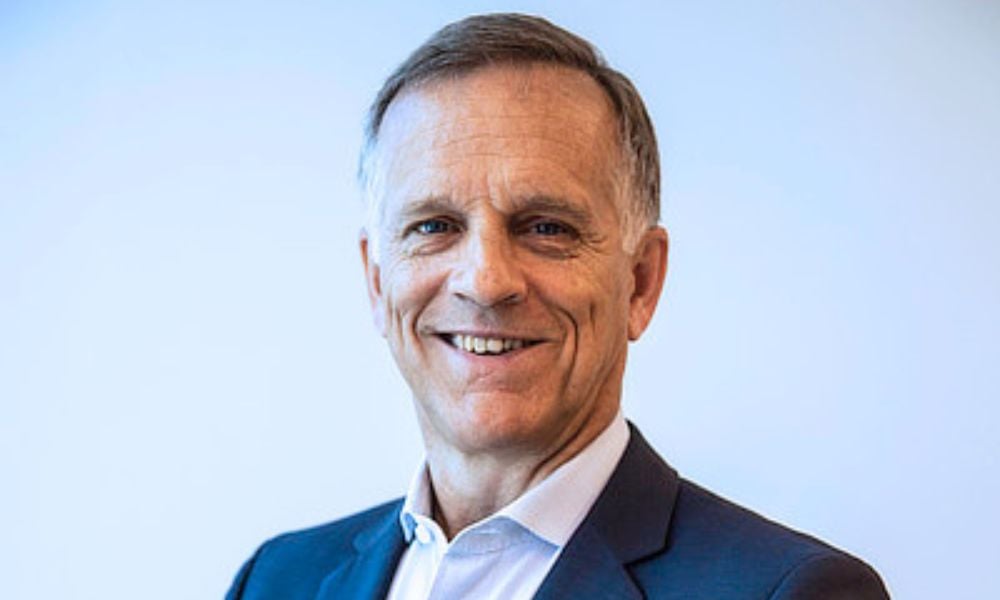Summerside’s program advertises opportunities
Chris Palmer remembers how angry he felt when he had to leave his Prince Edward Island home in Summerside 12 years ago.
“I hated it. Absolutely hated it. I probably hung around here three months longer than I should have, just kicking around trying to find some job and it just wasn’t there,” said Palmer, who had experience starting up a company doing computer sales and integration for small- and medium-sized businesses.
Palmer didn’t stray far, however. He moved to Moncton, N.B., then Halifax, much of the time running his own businesses, and keeping a longing eye out for opportunities back home.
He finally found that opportunity two years ago, through the Internet-based Summerside Connection Program set up by the city’s economic development director, Mike Thususka.
The idea for the program was germinating for four years, said Thususka. Through his travels to meet with former Islanders in Vancouver, Calgary, Toronto and Boston, Thususka found that people still retained a strong connection to P.E.I. They remained curious about happenings in the area.
“We were chatting internally here and talked about what are the ways we can connect with these people and keep them informed of potential opportunities. Summerside’s economy has changed over the last few years,” said Thususka.
He pointed to a growing aerospace cluster employing about 700 people, the expansion of Kodak Health Imaging Group’s research and operation facilities, and the growing food processing centre.
“We see a need in the business community. In order for business to grow, we need to help them, not only in terms of human resources issues but also in terms of market issues.”
The connection program is more than just a classifieds page on the Internet, said Thususka. He described it as a matchmaker service, hooking up people wanting to sell business with those looking to buy. The program has brought back a handful of people since the beginning of the year.
Though on a modest scale, the Summerside Connection Program is one of many repatriation efforts launched across Atlantic Canada, said Richard Gauthier, spokesperson for the Atlantic Canada Opportunities Agency.
“Statistics indicate very clearly that we are in a job-creation mode, and what we’re quickly coming up against is a labour shortage, whereby the number of residents who have left for other parts will cost us,” said Gauthier.
New Brunswick’s repatriation efforts, launched less than two years ago with a cross-country tour by Premier Bernard Lord, has resulted in 550 former New Brunswickers moving back, said Rob Macleod, manager of marketing and repatriation at the province’s department of Training and Employment Development. That figure surpasses the program’s initial target of 300 returning individuals in three years, he noted.
As for Palmer, who first came across the Summerside Connections Program on the Internet, he saw a business that was put up for sale and checked it out. It wasn’t a good fit, but in doing the research, he realized that “there are opportunities here that weren’t there before. The business dynamic seems to be stronger and more aggressive. There seems to be more happening.”
The decision was easy: Palmer moved back, along with his young family, and bought another IT company. “I wanted to be home, and the opportunity was there.”
“I hated it. Absolutely hated it. I probably hung around here three months longer than I should have, just kicking around trying to find some job and it just wasn’t there,” said Palmer, who had experience starting up a company doing computer sales and integration for small- and medium-sized businesses.
Palmer didn’t stray far, however. He moved to Moncton, N.B., then Halifax, much of the time running his own businesses, and keeping a longing eye out for opportunities back home.
He finally found that opportunity two years ago, through the Internet-based Summerside Connection Program set up by the city’s economic development director, Mike Thususka.
The idea for the program was germinating for four years, said Thususka. Through his travels to meet with former Islanders in Vancouver, Calgary, Toronto and Boston, Thususka found that people still retained a strong connection to P.E.I. They remained curious about happenings in the area.
“We were chatting internally here and talked about what are the ways we can connect with these people and keep them informed of potential opportunities. Summerside’s economy has changed over the last few years,” said Thususka.
He pointed to a growing aerospace cluster employing about 700 people, the expansion of Kodak Health Imaging Group’s research and operation facilities, and the growing food processing centre.
“We see a need in the business community. In order for business to grow, we need to help them, not only in terms of human resources issues but also in terms of market issues.”
The connection program is more than just a classifieds page on the Internet, said Thususka. He described it as a matchmaker service, hooking up people wanting to sell business with those looking to buy. The program has brought back a handful of people since the beginning of the year.
Though on a modest scale, the Summerside Connection Program is one of many repatriation efforts launched across Atlantic Canada, said Richard Gauthier, spokesperson for the Atlantic Canada Opportunities Agency.
“Statistics indicate very clearly that we are in a job-creation mode, and what we’re quickly coming up against is a labour shortage, whereby the number of residents who have left for other parts will cost us,” said Gauthier.
New Brunswick’s repatriation efforts, launched less than two years ago with a cross-country tour by Premier Bernard Lord, has resulted in 550 former New Brunswickers moving back, said Rob Macleod, manager of marketing and repatriation at the province’s department of Training and Employment Development. That figure surpasses the program’s initial target of 300 returning individuals in three years, he noted.
As for Palmer, who first came across the Summerside Connections Program on the Internet, he saw a business that was put up for sale and checked it out. It wasn’t a good fit, but in doing the research, he realized that “there are opportunities here that weren’t there before. The business dynamic seems to be stronger and more aggressive. There seems to be more happening.”
The decision was easy: Palmer moved back, along with his young family, and bought another IT company. “I wanted to be home, and the opportunity was there.”




